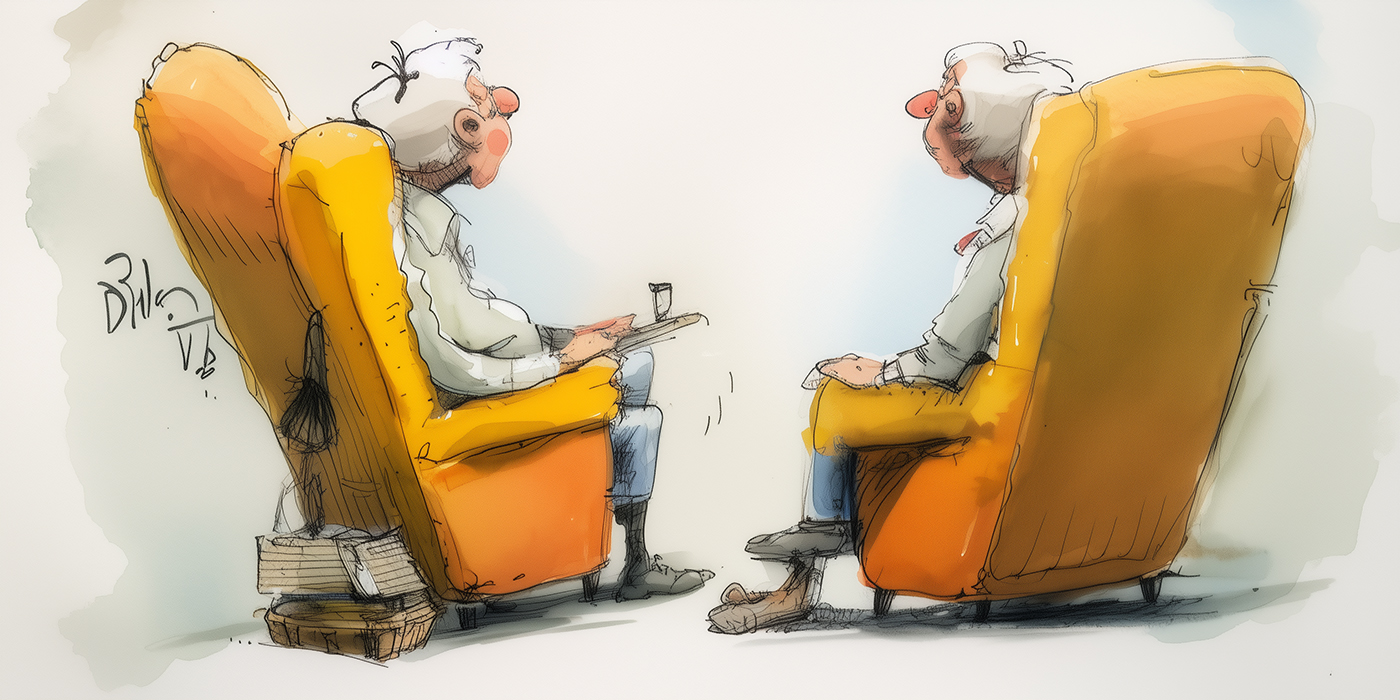One of the most important gifts I’ve received as the result of working Step Four has been the ability to get free from resentments more quickly and easily than ever before in my life. And along with freedom from resentment, I experience a level of peace, calm, and improved relationships which I never would have dreamed possible.
It has taken time and practice but it has really changed the whole way I operate in the world with others. I owe this new design for living to having learned and developed a way of working Step Four which I believe is straight out of Alcoholics Anonymous but which it seems, for some reason, has been overlooked among Twelve-Steppers. I call it “the missing piece of Step Four,” and, for me, it has been a serious game-changer in relating to others and reducing how long and to what degree I am affected by a resentment.
Traditionally Step Four is worked with four columns, the approach based on Alcoholics Anonymous (chapter 5). We inventory who or what we are resentful at, the cause, how it affects us, and then what our part is: namely, which character defect—be it fear, dishonesty, self-seeking, or selfishness—has contributed to the resentment. However, in between the third and fourth column, Alcoholics Anonymous describes an intermediary stage which we explore after seeing how much the resentment affects us and before looking at our part.
It’s called “This was our course” and Alcoholics Anonymous tells us in the previous paragraph that in time this course will allow us to “escape” and “master” resentments, which is essential to our spiritual recovery. On pages 66-67 it says: “This was our course: We realized that the people who wronged us were perhaps spiritually sick. Though we did not like their symptoms and the way these disturbed us, they, like ourselves, were sick too. We asked God to help us show them the same tolerance, pity, and patience that we would cheerfully grant a sick friend. When a person offended we said to ourselves, ‘This is a sick man. How can I be helpful to him? God save me from being angry. Thy will be done.’”
So here is how I break this stage of Step Four down as a workable part of the inventory: We are asked to consider that perhaps those who wronged us, like ourselves, were spiritually sick. First, what does it mean to be spiritually sick? The way I define someone who is “sick” in this context is someone who, at the moment they caused the wrong, were unable to behave otherwise. At that moment they were not in control. The analogy I like to use is to imagine that you are walking down the street when abruptly someone walks into you and knocks you down. Your initial reaction would probably be to be resentful. You might think or say, “Hey you idiot! Can’t you watch where you’re going?! How inconsiderate can you be?!” You look up and see that the man who walked into you is blind. Probably within a few seconds you would realize that this man did not intend to hurt you. At that moment, circumstances meant that he was unable to prevent himself from walking in to you. He was blind. He was unable to behave otherwise at that moment. He was “spiritually sick.” Although you may feel some discomfort and frustration over what happened, chances are that you will not harbor a resentment against him over the long term.
So too, when we look at ourselves and the circumstances under which we have wronged others we can ask ourselves, “Have I ever behaved in a similar way to the person I resent as the result of my own defects of character? Have I ever been inconsiderate or so self-involved that I wronged someone else?” If the answer is yes then we ask ourselves, “When I behaved that way did I intend to cause harm? Certainly I never wanted to harm anyone! If so then why did I behave that way?” The answer is “because the activeness of my own defects of character at the time blinded me to the harm I was causing. I was so self-involved that I could not really acknowledge, empathize or properly relate to the other person. My defect of character was in control and I, like a blind man, was not capable of acting otherwise in that moment.”
Now we ask ourselves: “Knowing that I never intended to cause harm do I believe that I could be forgiven for what I did? Am I willing to live with myself and forgive myself under such circumstances?” We usually don’t lose too much sleep over past harms. We empathize quite nicely with ourselves and see clearly our good natures and intentions. So yes, I would be willing to forgive myself.
Now here comes the twist. Knowing that I would be willing to forgive myself for such behavior, am I open to the idea of forgiving the person who has wronged me in a similar fashion knowing that they too were acting out of their own defects of character and did not really mean to cause me harm? If we are honest it should at least be a possibility although we may not want to commit to forgiving them right off the bat. Often we may be able to say with certainty that, in the light of this new perspective we do forgive them, now that we see it through the lens of our own experience.
Now that we have realized that the person in question was perhaps spiritually sick and never truly wanted to wrong us but was, like ourselves at times, temporarily blinded by their own defects of character, we are told to ask God to help us. We pray: “God, help me show so and so the same tolerance, pity, and patience that I would cheerfully grant a sick friend (or myself!). This person (like me at times) is sick. How can I be helpful to them? God save me from being angry. Thy will be done.” Through this process Alcoholics Anonymous tells us that “God will show us how to take a kindly and tolerant view of each and every one.”
Now we take a look at our own mistakes and defects of character commonly known as “the fourth column.” I believe that being able to see through my own experiences with my blinding and callusing shortcomings, causing me to behave in similar ways as the very people I resent, I can begin to acquire the spiritual traits that allow me to release resentments relatively easily. Today I realize that no one is really out to get me anymore. If they really knew what they were doing to me and how I was feeling they would certainly not do so. Their defects blind them. Their self-centeredness causes harm and destruction to the relationships around them unknowingly, like blind men. I have been there myself. They are spiritually sick. They are unfortunate to be this way, as I have been. God help them. I can be free.
I truly believe that in addition to seeing the nature of our wrongs in the fourth column, Step Four wants to teach us the tools to be free of resentment as quickly as possible. Tools we can practice and apply for a lifetime of spiritual growth. That’s why, when concluding Step Four, Alcoholics Anonymous says: “We have begun to learn tolerance, patience, and good will toward all men, even our enemies, for we look on them as sick people” (p. 70).
Without “This was our course,” the often missing piece of Step Four—this vital life teaching—may be missed out, and freedom from resentment will elude us and hinder our recovery.
Daniel K., Ramat Beit Shemesh, Israel






